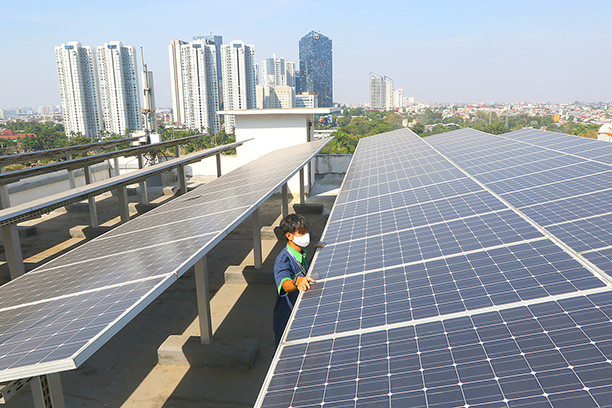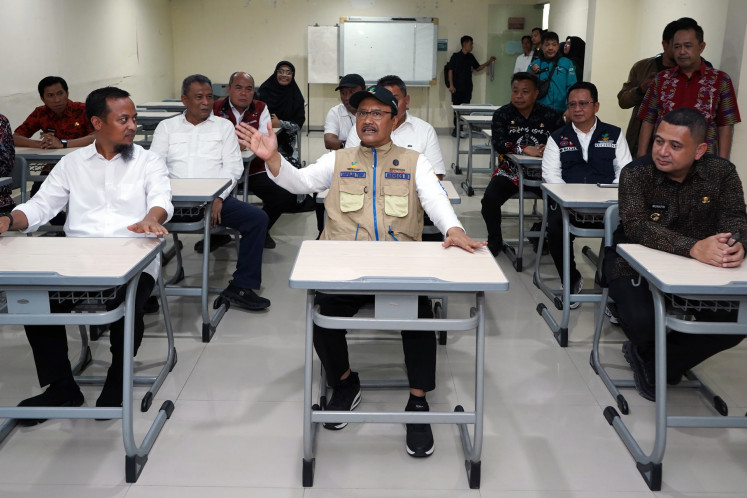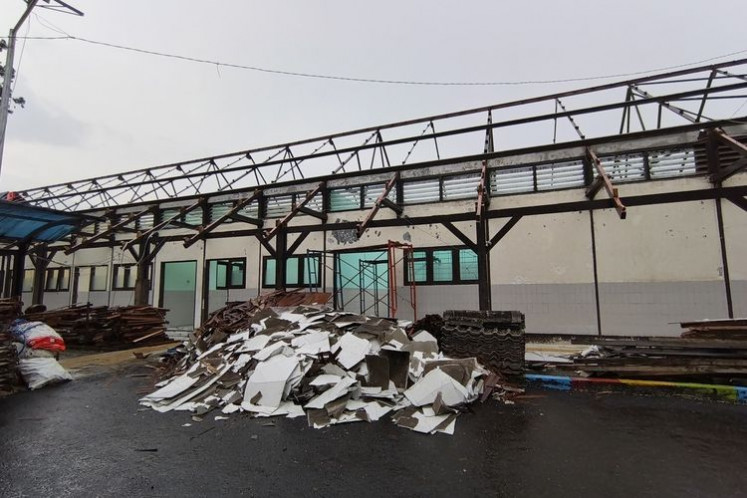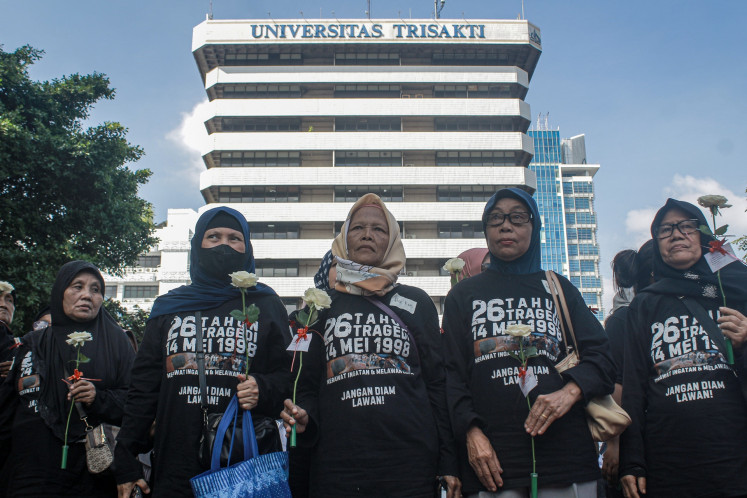RI ‘must push’ for green infrastructure funding
Indonesia will need some US$6.9 trillion per year for green infrastructure construction to achieve its 2030 sustainable development targets as stipulated in the Paris Agreement.
Change text size
Gift Premium Articles
to Anyone

T
he nation’s green infrastructure financing industry is expected to grow as the government pursues its sustainable development plans, but more effective utilization of national and international public funding is crucial to accelerate the process, experts say.
Climate Policy Initiative (CPI) associate director Tiza Mafira told The Jakarta Post on Tuesday that considering the government’s ambitious green infrastructure development plans, national public funding institutions had a crucial role to play in encouraging green sector investment.
Tiza suggested that state-owned infrastructure financing company PT Penjaminan Infrastruktur Indonesia (PII), for instance, expand the list of sectors, risk identification areas and projects that could be guaranteed.
“[PII] can do this by collaborating with existing public funding institutions, such as PT Sarana Multi Infrastruktur [SMI] and PT Indonesia Infrastructure Finance [IIF],” Tiza said.
Indonesia will need some US$6.9 trillion per year for green infrastructure construction to achieve its 2030 sustainable development targets as stipulated in the Paris Agreement, the Finance Ministry’s Fiscal Policy Agency (BKF) estimates.
The country relies on investment as one of the main engines of gross domestic product (GDP) growth, hoping it will create jobs, which could boost purchasing power and consumer spending. The GDP rose 3.69 percent in 2021, driven largely by a rebound in investment, Statistics Indonesia (BPS) data show.
The country, however, has not made green development projects competitive with other forms of investment. Regulatory issues, including licensing and land acquisition, have kept financing costs high for renewable energy and made Indonesia less competitive than other countries in Asia. Environmental problems surround the expansion of mining and plantation sites, carrying high risks for investment.
Furthermore, financing costs of renewable energy in developing countries, including in Indonesia, are up to seven times higher than in the United States and Europe, with higher levels of risk, according to a 2021 International Energy Agency (IEA) report.
Read also: Green building industry needs nudge from regulators
Meanwhile, PII has said that it supported a total of 42 projects with its creative financing scheme from the program’s establishment in December 2009 to the first half of this year.
The projects, with a total investment value of Rp 476 trillion (US$31.62 billion), are in six sectors, including toll roads, transportation and renewable energy power plants.
PII president director Wahid Sutopo said financing for the 42 projects had come from payment guarantee schemes in a public-private partnership scheme, as well as a corporate financing scheme.
“The role of PII in the development of infrastructure projects is to provide assistance through the project development facility, [providing] guarantees [...] as well as capacity building,” he told the Post, adding that the company was seeking to guarantee several projects worth a total of Rp 63.65 trillion this year.
In the public-private partnership model, PII provides guarantees on risks related to government commitment to businesses, including land acquisition and commitment tariff. In the corporate financing model, PII provides guarantees for the possibility of default from the borrower.
“Indonesia has huge business opportunities in the green financing sector, considering the growing concern over the impending climate crisis,” Wahid said.
Read also: Indonesia proposes $11b in green projects amid regulatory issues
“[PII] also provides a direct lending scheme from national financial institutions, as well as multilateral institutions, to finance the energy sector,” he said, citing the company’s collaboration with the Finance Ministry to provide guarantees for state-owned electricity company PLN in developing the electricity ecosystem, without specifying the type of guarantee.
Trisakti University public policy expert Trubus Rahadiansyah said the government needed to continue improving the effectiveness of national public funding institutions, including PII, to improve the clarity of public financing allocation for green infrastructure projects and accelerate the country’s green infrastructure development.
“Indonesia still has a long way to go to build [its targeted] green infrastructure projects, but we’re well on our way. Stakeholders need to seize opportunities, especially considering that the construction of the new capital city is underway,” he said.
The Investment Ministry has put 47 green-licensed projects on offer this year worth over Rp 155 trillion, as the government aims to tap into the growing global sustainable finance market and boost the economy.









